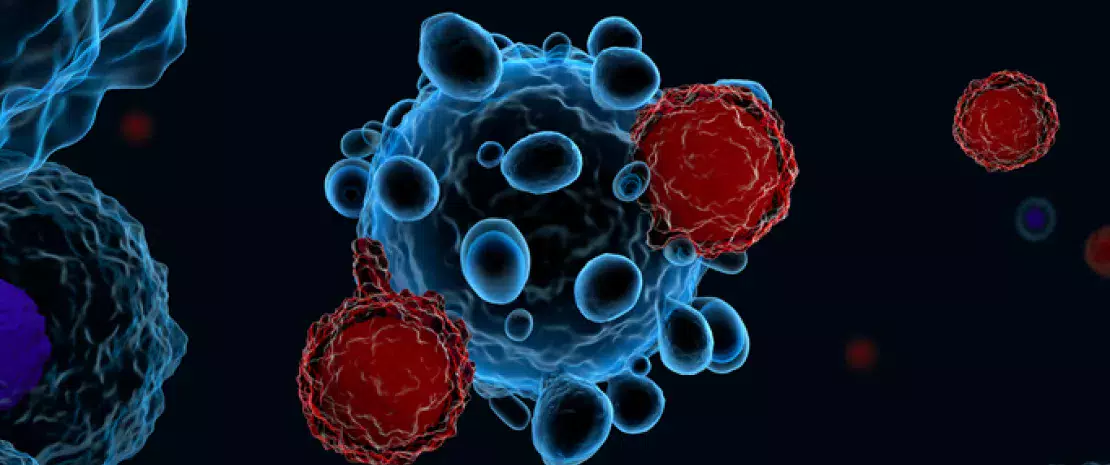What if manipulating the microbiota could improve the response to immunotherapy?
Gut microbiota may modulate responses to immunotherapy. Although it is too early to propose a scientifically validated cocktail of probiotics, the use of antibiotics during therapy should be better justified.
Lay public section
Find here your dedicated section
Sources
This article is based on scientific information

About this article
More effective and less toxic than chemotherapy, CAR-T cell immunotherapy is the subject of an increasing number of clinical trials. This treatment genetically modifies T cells to give them a Chimeric Antigen Receptor (CAR) which allows them to specifically recognize and kill tumor cells. Despite impressive results in some patients, the clinical response to CAR T cells remains highly variable.
The authors’ hypothesis
In this review, the authors suggest that manipulating the gut microbiota could improve responses to CAR-T cells, even though there are currently no published results confirming this. The only study available, a single-center observational study involving 25 patients receiving CAR-T cells, shows that responders have a different microbial make up than non-responders, suggesting a possible link between intestinal microbiota and CAR-T cell response. Nevertheless, the authors base their hypothesis on a number of points: the growing nonclinical and clinical evidence throwing light on the escape mechanisms in CAR-T cell non-responders; clinical evidence of improvement in responses to (sidenote: Immune checkpoints are used by tumors to protect themselves from immune system attacks and may be blocked by ICI therapy in order to restore the immune system function. ) *) therapy via manipulation of the gut microbiota (diversity and composition); and finally, the common immunological characteristics of CAR-T cells and ICI.
What are the practical recommendations?
If the microbiota is involved in responses to CAR-T cell therapy, the use of broad-spectrum antibiotics during immunotherapy may result in dysbiosis, reduced response to treatment and a reduced survival rate. As regards probiotics, although certain bacterial groups may have a positive effect on responses to immunotherapy, the results of clinical studies are not always consistent enough to clearly separate taxa into “favorable” and “unfavorable” categories. Consequently, a scientifically prepared “cocktail” of live bacteria remains out of reach. In the meantime, the team recommends not using commercially available probiotics during cancer treatment, since they may dilute the native intestinal flora and potentially make it less diverse. Similarly, the team advises against the imprudent use of broad-spectrum antibiotics during immunotherapy and CAR-T cell therapy.






